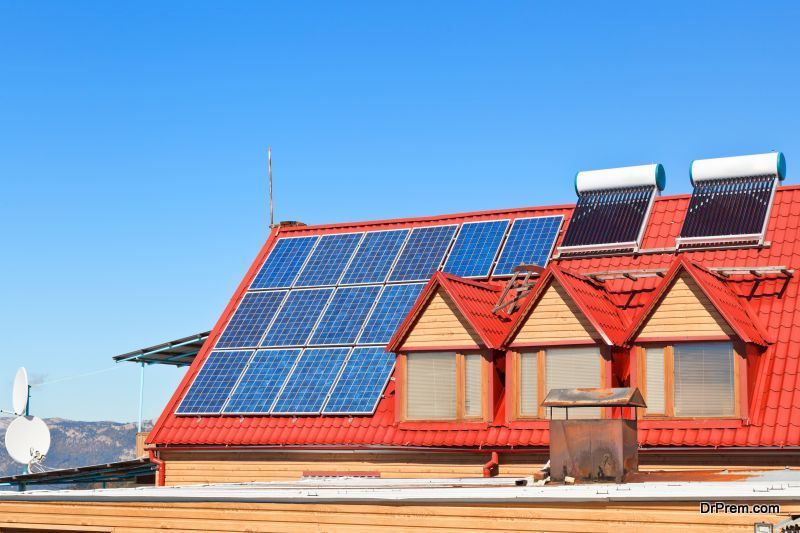Whether you want to move toward a completely green and sustainable lifestyle or you simply want to improve your health habits, you can do a slew of activities for the environment and get fit as well. Even making small changes can reduce negative effects on the environment and be a significant improvement in the long run. Here are some easy eco-friendly yet healthy changes that can increase your quality of life and even help save you money; after all, going green is perfectly healthy as well.
- Move Away From Disposable Paper Products
Do you use paper plates and napkins during meal times or wipe up spills with paper towels? Consider switching to reusable dishes and cloth napkins and towels to reduce waste. You may even save money since you won’t have to buy paper products anymore.
- Be a Locavore
While it’s nice to have bananas in January, the fact is transporting food from farms to grocery stores is extremely expensive in terms of energy and pollution. Try switching to a seasonal diet for better health benefits and buying from local producers as much as possible.
Instead of throwing all your trash in a single bin for transportation to the dump, separate your items into recycling and compost piles. Having your own compost pile gives you free fertilizer for your garden or yard to grow healthy veggies all year around. If you don’t want to maintain a compost pile, look into other options. Some trash services will allow a separate bin for compostable items, or there may be a compost drop-off in your city.
- Change to Energy-Efficient Light Bulbs
Traditional incandescent light bulbs are extremely inefficient. Switching to CFL or LED bulbs can substantially lower the amount of electricity needed to light your home. With the variety of energy-efficient lighting options available, you can conserve valuable resources and enjoy a lower utility bill.
- Find Efficient Transportation
Driving yourself to work every day can be a significant source of pollution and waste of natural resources. Look into more environmentally friendly options, such as carpooling, taking public transportation, or even riding a bike.
The next time you are considering a home improvement project, why not think about moving toward a sustainable and renewable energy source? Between tax benefits and savings on your utility bill, switching your home to a solar, wind, or geothermal energy system can be extremely beneficial for you and the environment.
- Stop Passive Power Usage
Did you know that many electronics slowly drain power even when they aren’t in use? Some of the most common culprits include streaming video set-top boxes, modems, and computers. Consider plugging your electronics into a power strip so you can easily shut off the energy drain when you aren’t using them.
- Install a Clothesline
When you think about household appliances that use a lot of energy, your dryer should be foremost in your mind. A clothes dryer uses a large amount of energy and running it for several hours multiple times a week is not eco-friendly. Consider installing a clothesline in your yard, garage, or basement to dry some of your laundry. Even if you just pick a few things to line-dry, such as sheets and towels, you can greatly reduce your energy usage.
You probably know to turn off the sink when brushing your teeth and fix plumbing leaks immediately. However, there are more ways to reduce your household’s water usage. Consider switching to a low-flow showerhead, which can use up to 60 percent less water. Reducing your shower time, even if it’s only by a minute or so, can add up to large savings over the course of a year.
You can also save water when washing your produce. Simply wash your fruits and veggies in a large bowl of water instead of under a running tap. When you’re done, use that water for your lawn or houseplants. You can also use leftover (unsalted) cooking water for plants.
- Support Positive Change
Along with making eco-friendly changes in your own life and household, it’s also important to support organizations and companies that are making green and sustainable choices. Consider choosing a hybrid or electric car for your next vehicle. Participate in local elections to support eco-friendly legislation. Research successful efforts, such as the Cadiz Water Project, and see if you can bring similar initiatives to your own town. Publicly supporting eco-friendly projects can help increase awareness and encourage others to move toward an environmentally friendly lifestyle.
Taking care of the environment is an important concern and one that should be a factor in maintaining a household and lifestyle. There are several small changes to make in your daily life that can help you become more eco-friendly and eventually healthier than you would have been thus far. Reducing your water and electricity usage not only helps the environment but also saves you money on your utility bills. You can also support environmentally friendly organizations and encourage your community and government to do the same. Even small changes can have a significant impact, both locally and globally.
Article Submitted By Community Writer






